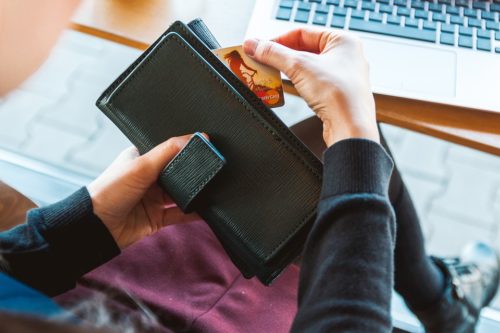There are clear risks associated with using a credit card. Most significantly, that you will spend money you don’t have and then struggle to pay that money back. The longer it takes to pay the money back, the more interest that accumulates, and the amount you owe will continue to climb. Credit cards can absolutely provide a false sense of security.
However, when used correctly, credit cards can be utilized to provide better financial freedom and can help improve your credit rating, potentially without paying the credit card company anything. Ultimately, credit cards are like a great many other things: while the damage can be great, the benefit can also be great if used correctly.
So how do you do it? How do you utilize something that can negatively affect your finances for years, so that instead it maximizes your quality of life? You do it by playing by the rules, all the time.
Table of Contents
Can you make the payment?
Good credit is a direct result of the fact that someone has a good debt repayment record. Credit cards remain a viable option only when the payments attached to them are within your budget. Spending money you don’t have is a big no-no, and if it becomes a habit, it’s one that will create a seriously dangerous situation.
While it may seem counter-intuitive, you must have debt to have good credit, because those timely payments you make count for 35 percent of your score. If you are committed to not hurting your credit, you will also be dedicated to analyzing how much of your budget can go to your payments.
If you’re wondering whether or not to charge it, consider what the balance is on the card. If you’re already going to struggle to make the payment, then using your credit card is unwise. As a rule, its beneficial not to allow your balance to exceed 25 percent of the card’s limit.
Can you earn cash rewards or cash back?
When deciding whether or not to use a card, or which card specifically to utilize, consider whether or not it will provide the opportunity for you to earn cash back or card rewards. Many cards offer this as an option, and while some do offer it for every purchase, for others it’s a matter of category.
If you have a card that offers cashback on everything, then it may make sense for you to put nearly all of your purchases on the credit card. This, of course, only makes sense if you can pay off the entire credit card at the end of the payment cycle. If you have a card which offers cashback on specific things, like gas or supermarket purchases, there is wisdom in utilizing your card for only those purchases.
However, if the amount you need to spend to receive something along the lines of a “bonus” exceeds the limits of your budget, than it’s not a goal you should be shooting for.
Is it safe?
Sometimes we have to use our cards in places we don’t feel 100 percent comfortable, and unfortunately credit card fraud is a very real concern. If the card reader is outside, then it may not be monitored as well as the card readers that are inside and under the supervision of employees. Gas stations and ATMs are the targets most frequently hit by the card skimming machines that can steal your information.
All of us, at one point or another will have to buy gas, or use an ATM, or even hand our cards off to the very nice, but also complete stranger waiting on your table. While credit cards are not foolproof, they don’t have as many fraud-related risks as debit cards.
Consumer protection laws treat credit and debit cards differently. If a fraudster gets ahold of your debit card, you could be liable for up to $500. However, federal law keeps the credit card limit you can be held responsible for to $50. Plus, typically when your credit cards are used for fraudulent purchases, after reported, the credit card company will immediately replace the funds available to you.
Charge It Like You Mean it
It makes sense to approach credit card use with care; it’s a wise move to recognize the risks and advantages of every financial tool available to you, and used correctly credit cards are both a tool and a resource. So go for it, but do so in the careful kind of way you won’t have to feel guilty about when your statement arrives at the end of the billing cycle.
Looking for more information on how to use a credit card? Visit the Fiscal Tiger credit card learning and resource center for more tips and guides.
Image source: https://pixabay.com/





